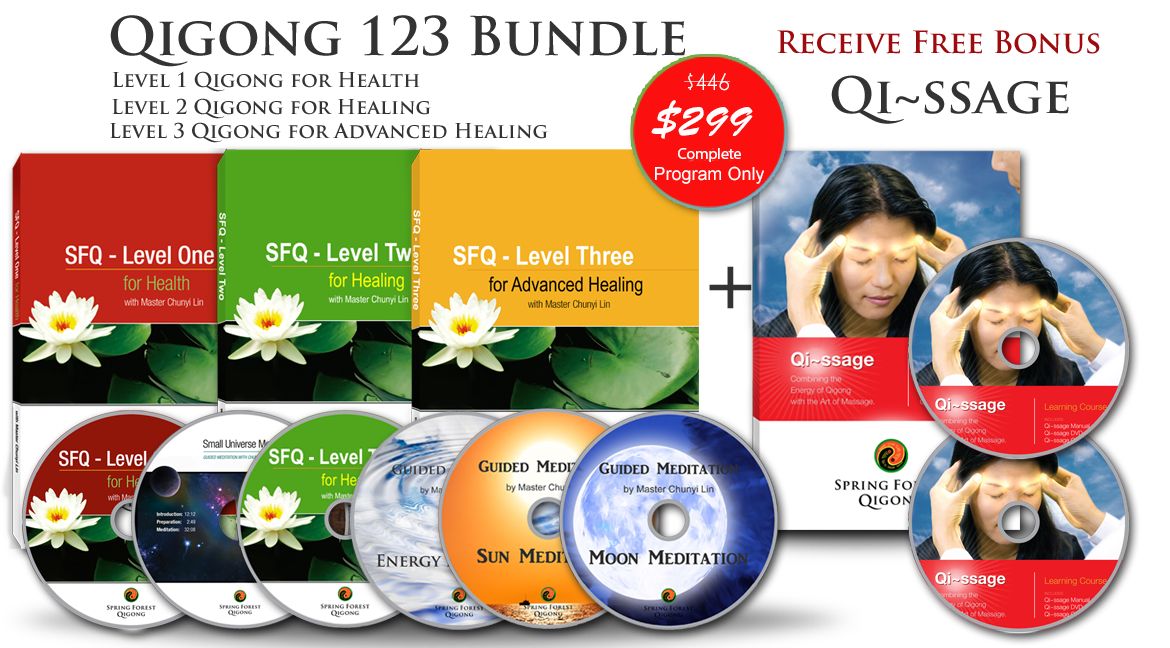Dare to Discover What You Are
Spring Forest Qigong
Maybe you remember a song from the 1980s. It went like this:
“Why don’t you dare to be stupid? It’s so easy to do. Dare to be stupid—we’re all waiting for you.“
We’re all waiting for you.
About a hundred years ago, there was a sage in India. In his presence, countless people felt the divine awaken in their hearts. Others didn’t feel anything. Their minds were so agitated, they were numbed to it. So they asked, How can we know the peace that you know? He said, Just keep asking yourself, “Who am I?” With the simplest question, he showed them the ultimate. Ramana Maharshi dared to be stupid.
Almost twenty-five hundred years ago, Socrates heard he was the world’s wisest man. When he heard the news came from a sacred temple, he went pale. How could this be? All I know is that I don’t know anything! At the entrance of the temple were these words: Know Thyself. Socrates knew himself. Socrates dared to be stupid.
Years before that, Lao Tzu lived his life in China. His words come to us as the Tao Te Ching; millions of people have lived by their wisdom. But he said, “I am a fool. Oh, yes! I am confused. Others are clear and bright, but I alone am dim and weak. Others are sharp and clever, but I alone am dull and stupid.“
Lao Tzu dared to be stupid.
Jellaludin Balkhi lived in Persia eight hundred years ago. He was a scholar, a very intelligent man. Crowds would gather just to hear him argue. One day a beggar asked him a question; when Jellaludin heard it, he fell to the ground, speechless. He left his name, his position, and his knowledge to follow this beggar. He began to sing, to dance, to give birth to ecstatic poetry—all to express his joy in what he had found. He said:
“I was dead, then alive. Weeping, then laughing. The power of love came into me, and I became fierce like a lion, then tender like the evening star... I plucked out my feathers and became a fool.“
The world knows this love-drunk fool as Rumi; millions have touched the divine through him. Rumi fell to the ground and dared to be stupid, and he’s waiting for you.
They’re all waiting for you.
If any of those sages asked you who you are, what would you say? Would you say your name?
What if they told you that wasn’t enough?
Would you say what your job is? What degrees you have? How much money you make? Where you were born? What you like? Don’t like? What happened to you ten, or twenty, or fifty years ago? What if none of that was good enough—what would you say?
Maybe you remember a movie from the 1980s. A girl finds herself lost in an endless maze. Along the way she meets an old woman, bent and wrinkled, hauling a pile of junk on her back—baskets, baubles, toys and trash. And she keeps piling more of that junk onto herself— anything she can grab! The girl is looking for a way out of the maze, but the old woman tells her, “Best to stay in here, where it’s safe. Don’t know what might happen to you out there!” 4 While the girl wonders what to do, the old woman starts loading junk onto HER back.
“Who am I?”
Any answer you might give—your name, your job . . . your net worth, your place of birth . . . stories you’ve told yourself for ten, twenty, fifty years—not one of them is who you are! All of them together is not who you are. Not really.
Have you ever thought about it?
We all have social lives, societal lives. We’re all part of many social circles: circles of family and friends, countries and continents, biological and planetary life. Being part of them, we have a role in relation to them—an identity.
On the smaller scales, these identities are useful. They’re like broad, clear, even-laned highways. Highways are accommodating. You see lots of people on them—beside, behind, and in front of you, coming and going. In the outer world, your answers—your identities—are convenient clearings in the trackless wild. In the inner world, they’re all junk. Dead weight. Sideroads. Dead ends.
Of course, people tell you differently; the more trash, toys, cobwebs and tin cans on your back, the more accomplished or sophisticated you are. But if you really want to find out who you are, if you really want to go inward—it’s nothing but a burden.
Do you know the words social and society have the same a root as the words second and sequence? That root means “to follow.” And that’s the root of the confusion over the answer to the question, “Who am I?”
The confusion is that from the beginning, before you even know to ask the question, everyone gives you answers! They take your hand, load tin cans on your back, and set you on the highway. All your answers are coming from outside, and your whole life, you follow— a sequence of second-hand answers.
How do you shed the dead weight? How do you get off the highway and into the wilderness? How do you discover yourself?
You dare to be stupid.
What is it to be stupid? Not to know. That’s it! Just don’t know. Lao Tzu said, “Not-knowing is true knowledge.” But how do you not know? How do you unknow?
Would you believe . . . deep, gentle breaths . . . simple body movements . . . sitting quietly . . . and enough trust to give them a try would be enough?
Would you believe . . . information is energy . . . emotions are energy . . . thoughts are energy . . . and the stories in our minds and hearts are energy?
Would you believe . . . energy can be transformed?
And would you believe . . . all things and all energy come from emptiness and return to emptiness?
It’s like walking through a forest towards a deep spring while wearing many layers of clothes—coat, jacket, sweater, scarf; overalls, underwear; socks, gloves, boots. As you walk closer and closer to the spring, the forest grows thinner and thinner, quieter and quieter, and you shed more and more layers. When you finally reach the spring, you drop the last little piece of clothing and—dive in! Not only are there no more clothes—there’s no more you! Just a quiet forest and still water.
This has been the experience of Qigong practitioners for thousands of years; this is what Spring Forest Qigong is offering you.
Would you believe it?
Across the Eastern world, people tell hundreds of stories about a wise man who lived 1200 years ago. Some people thought he was a fool, though; sometimes it’s hard to tell the difference. His name was Mr. Nasreddin.
One day the townspeople found him pouring the last of his yogurt into a lake. A man asked him,
“Mr. Nasreddin, what are you doing?”
“I’m turning the lake into yogurt,” he said.
Everyone laughed, and the man answered,
“Can a little bit of yeast ferment all that water?”
“You never know,” said Mr. Nasreddin. “But what if it does!”
You never know.
Learn Qigong for Health and Healing

Qigong 123 Bundle Best Value
Self-Learning Course and Guided Practice with Master Chunyi Lin
Comprehensive guide to Spring Forest Qigong techniques that have helped empower hundreds of thousands of people to understand that they were born a healer. Including three Spring Forest Qigong courses, Qigong for Health, Qigong Healing, and Advanced Energy Development and Healing.
Details

